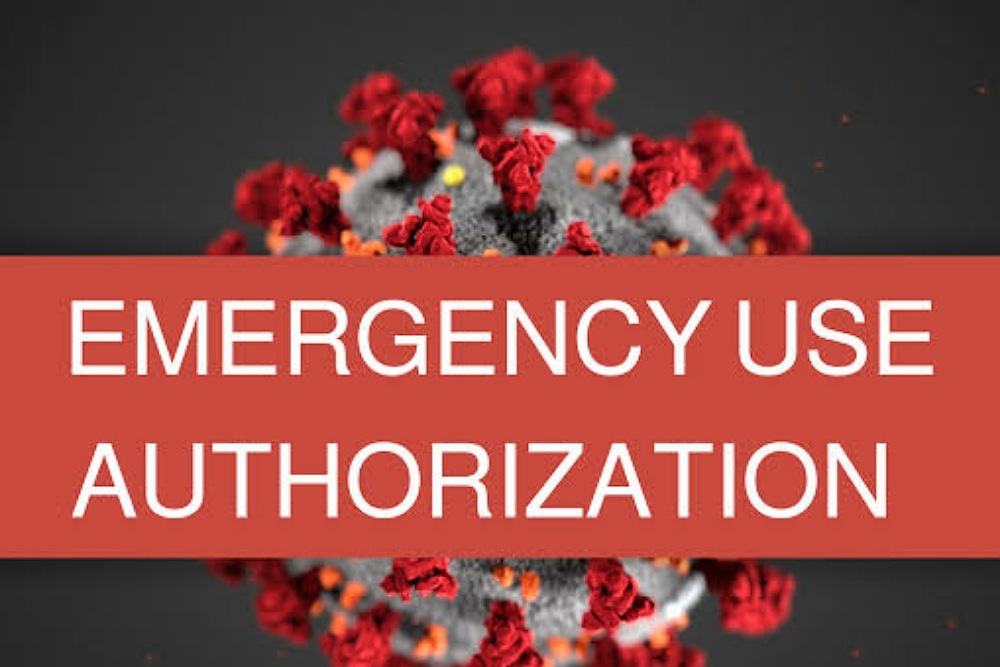
The Eli Lilly company has announced a deal with the U.S. government. The government will pay Eli Lilly $375 million to deliver 300,000 doses of its experimental Covid-19 antibody drug over two months, with an option to purchase another 600,000 doses by June 30. They anticipate manufacturing up to a million doses by the end of 2020. Patients will have no out-of-pocket costs. The deal is contingent on Eli Lilly being granted an emergency use authorization (EUA). The drug failed to show a benefit in hospitalized patients but the company “is confident the drug is helpful to those earlier in the course of the disease”. I question whether a failed study and the company’s “confidence” are enough to justify an EUA.
Several companies have been testing monoclonal antibody drugs, singly or as cocktails of two or more antibodies, as a potential treatment for Covid-19. Some of the early results were promising. President Trump was given Regeneron’s experimental antibody cocktail along with several other treatments when he was hospitalized at Walter Reed. He recovered but couldn’t possibly know what was responsible for his improvement. Nevertheless, he hyped Regeneron’s drug, calling it miraculous, announcing that it had cured him.
Regeneron had recently released data showing that its drug, a cocktail of two lab-generated antibodies, appeared to help the body clear the virus when it was given early in the disease. The trials were not complete and had not been published. Giving it to the President was authorized under “compassionate use” guidelines for experimental drugs.
A spokesperson for the company said:
We feel like the early indications of antiviral activity and potential impact on the clinical course of disease is very promising
But several authorities questioned the wisdom of giving it to the President. “It is bad science, bad medicine and bad ethics to give unproven things to powerful people”, wrote Dr. Vinay Prasad in a Twitter post. Another doctor commented, “V.I.P. medicine doesn’t mean better medicine when there is no data”. And of course, our own David Gorski weighed in.
On October 30, 2020, Regeneron announced additional results from an ongoing phase 2/3 placebo-controlled trial in outpatients. They confirmed earlier reports that treatment with REGN-COV2 reduced viral load and time to alleviate symptoms, and additionally reduced medical visits by up to 72% in patients with one or more risk factors. They have submitted results to the FDA requesting an EUA. Other studies are ongoing, including an open-label study of inpatients and a trial for prevention of the disease in household contacts of infected individuals.
Regeneron has announced a federal supply deal that lacks some of the customary protections. It is a $450 million contract to supply up to 300 million doses to the government for national distribution. It was negotiated through a third party and details are not available.
Vaccines
Currently there are 149 Covid-19 vaccines in preclinical development and 38 in clinical trials. Even if one of them is a clear winner, it will still take a long time to scale up production and there are already discussions about the ethics and practical challenges of vaccine allocation while supply is limited.
The government has made deals for experimental vaccines, too. The Department of Health and Human Services (HHS) has announced a $1.5 billion deal with Moderna for the first 100 million doses with an option to buy up to 400 million more doses. The 53-page contract is full of redactions and details are sketchy.
Emergency use authorizations
The FDA can issue emergency use authorizations (EUA) for experimental drugs. The recent experience with hydroxychloroquine is a cautionary tale. The FDA issued an EUA for hydroxychloroquine in March 2020 but quickly had to revoke it 3 months later, in June, because every single good study had found it ineffective for Covid-19 and it was known to cause serious side effects.
Conclusion: Questionable use of taxpayer dollars
I’m puzzled. Eli Lilly did a clinical trial, and its product failed to do what it was supposed to do, but the US government agreed to buy the product anyway, for over $300 million, and give it to patients. What is going on here? The pandemic is a health emergency, and I understand the need to get treatments approved as quickly as possible, and it might make sense to expedite delivery by starting to manufacture a drug before the studies are complete, assuming the studies are well done and are showing strong promise. But when one company has positive evidence from clinical trials, is there any justification for making a deal with another company that has only negative evidence and “confidence”? I just don’t get it. Maybe someone can explain it to me.

